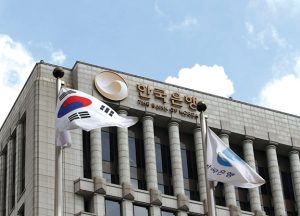Bloomberg
Bank of Korea (BOK) Governor Lee Ju-yeol said omicron is the biggest threat to the economy’s recovery, sounding a cautious note ahead of a policy meeting later this month.
The threat posed by the virus variant comes on top of other external risks including rising global inflationary pressure, policy normalisation by major economies and a possible economic slowdown in China, Lee said in a speech delivered to financial industry officials.
“I hope to see Korea’s economy to completely free itself from the risks of the coronavirus in the new year, but looking at external and internal conditions, there are many lurking challenges and danger factors that need to be overcome,†he said.
The governor’s wary comments underscore the challenges the BOK face as it mulls when to raise interest rates again, following two hikes in the second half of 2021. The central bank has said it won’t rule out the possibility of another rate increase in the first quarter of 2022, holding the view that the economy will continue its steady recovery despite headwinds from the virus.
Along with the Reserve Bank of New Zealand, the BOK is leading policy normalisation moves in Asia as some central banks look to take early action to stem inflationary pressure and avoid financial imbalances.
In South Korea’s case, the government has continued to support the economy, providing the central bank with more scope to scale back its emergency measures without knocking back recovery momentum.
Ahead of a presidential election in March, the ruling Democratic Party’s presidential candidate Lee Jae-myung called for an extra budget of up to $25 billion to be put together before the lunar new year holiday.
The BOK is scheduled to meet on January 14 for the first time since it increased the benchmark rate by a quarter percentage point to 1% during the last meeting held in November. Lee’s term ends on March 31, leaving him two meetings this quarter. The bank’s February meeting comes ahead of a presidential election in early March.
In his remarks, Lee also called on financial companies to focus on managing risks. Credit risks could increase among households and small business owners in the course of normalising monetary easing, Lee added.
 The Gulf Time Newspaper One of the finest business newspapers in the UAE brought to you by our professional writers and editors.
The Gulf Time Newspaper One of the finest business newspapers in the UAE brought to you by our professional writers and editors.
